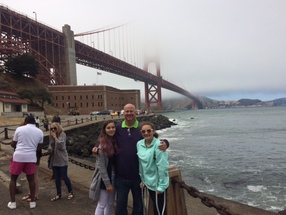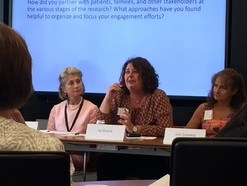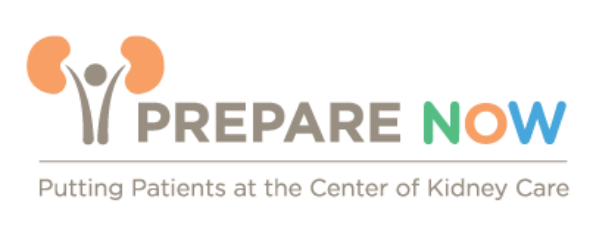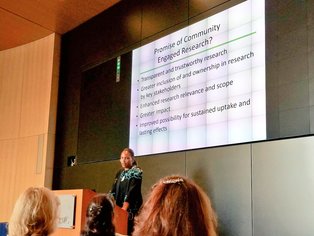 Peter Woods enjoying some quality time in California with his two daughters Peter Woods enjoying some quality time in California with his two daughters This blog post comes to us from our Co-Investigator, Peter Woods. During my years as a Sergeant for the NYPD I thought I saw and experienced everything. As a matter of fact, I think I saw too much. I was a first responder at 9/11and spent months working at Ground Zero. I decided to retire when my job was done at Ground Zero. I was hired by the US Marshall service as a subcontractor to do Court Security at the Federal Courthouse in lower Manhattan. I had major plans to move on with a new career and spend more time with my family. There is an old saying “When you make plans God laughs”. One day I wasn’t feeling well. I went to the doctor and had several tests conducted. I was diagnosed with an auto-immune Kidney disease and an auto-immune Lung disease. So much for working at Ground Zero and the EPA stating that the air was fine, but that is a subject for another day. As I was being treated for my Kidney disease I brought up the question of Dialysis. It was not really addressed and I was told that my numbers are ok and not to worry about dialysis. So I went on with my life until I ended up in the emergency room. My Nephrologist met with me and she told me that my numbers were very bad and I have to start dialysis. The date was June 17, 2008 and I had no idea what I was in for. I had so many questions and sometimes got bad information. I remember asking about dialysis just before surgery to insert a chest catheter. One of the staff told me not to worry because I can get a kidney transplant and things will be fine. Are you kidding me? Like kidneys grow on trees and you can just pick one out for yourself.. I decided I needed to educate myself. I call this my Shock and Awe period in my life. First, how to deal with dialysis. I felt I no longer have control over my life and I need to take it back. I had to learn how to accept dialysis and I have to make it my best friend because it is keeping me alive. I also had to learn how to deal with loss. The loss of a job, the loss of your freedom, and eating and drinking. So many restrictions on so many aspects of my life. I also had to deal with the affects of dialysis on my family. I had to explain to my children who were small at the time that I will not be around every other day for four hours and when I come home I will not be feeling well. I explained to the kids that I need my blood washed and it goes through a machine to wash it. My youngest came up with the name wishy washy. So when she didn’t see me she would ask me if I had to go to wishy washy. I think this is how she dealt with my dialysis. For me, it was on the job training when it comes to dialysis. Every dialysis patient knows what it is like. I still to this day cannot believe how ignorant and misinformed I was. This is why I volunteered for this study. I do not want another patient to go through what I went through. Knowledge is true power. Especially when it comes to dialysis. This blog post comes to us from our Co-Investigator, Teri Browne, PhD, MSW Last week, I had the exciting chance to attend the Advancing the Science of Community Engaged Research Innovative and Effective Methods of Stakeholder Engagement in Translational Research conference in Washington, DC at the Association of American Medical Colleges. PREPARE NOW Principal Investigator L. Ebony Boulware and project director Patti Ephraim were also in attendance, and together we learned more about doing research with community partners and ways to conduct research that means the most to communities.
 I was honored to present as part of a panel in a Learning Lab session, “Partnering with Patients, Families, and Other Stakeholders in Healthcare Systems Research: Examples and Lessons Learned from Six PCORI-Funded Studies.” In this Learning Lab, I talked about the work that we are doing in PREPARE NOW, joining PCORI representatives and researchers from five other PCORI-funded projects from U.S. We were excited that we had a full room of people attend this session, and that I could share information about the ways we have been collaborating with patients with kidney disease, their family members, and community stakeholders to help change a health system to improve kidney care. Attending this conference with Ebony and Patti was very inspirational as we listened to ways that we can better help the patients and family members working with us be part of our research project, and it was very exciting to share information about our project to this national audience! |
Archives
September 2020
Categories |


 RSS Feed
RSS Feed
